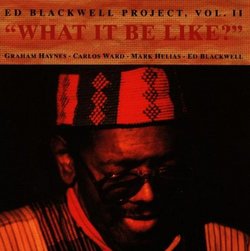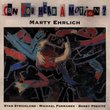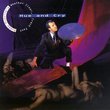| All Artists: Ed Blackwell, Carlos Ward, Mark Helias Title: Ed Blackwell Project, Vol II "What It Be Like?" Members Wishing: 1 Total Copies: 0 Label: Enja Original Release Date: 6/23/1994 Re-Release Date: 6/28/1994 Genres: Jazz, Pop Style: Avant Garde & Free Jazz Number of Discs: 1 SwapaCD Credits: 1 UPC: 063757805427 |
Search - Ed Blackwell, Carlos Ward, Mark Helias :: Ed Blackwell Project, Vol II "What It Be Like?"
 | Ed Blackwell, Carlos Ward, Mark Helias Ed Blackwell Project, Vol II "What It Be Like?" Genres: Jazz, Pop
Just two months before his death, drum legend Ed Blackwell led a handpicked, Ornettesque quartet at Yoshi's in Oakland. Trumpeter Don Cherry is a featured guest on the last track. "The drummer plays it straight, plays it w... more » |
Larger Image |
CD DetailsSynopsis
Album Description Just two months before his death, drum legend Ed Blackwell led a handpicked, Ornettesque quartet at Yoshi's in Oakland. Trumpeter Don Cherry is a featured guest on the last track. "The drummer plays it straight, plays it wicked, lets it rip, and lets it breathe" ( JazzTimes, HHHHH). Similar CDs
|
CD ReviewsPercussion giant stands tall near the end of his life Tyler Smith | Denver, CO United States | 05/10/2000 (5 out of 5 stars) "Blackwell, one of the giants of modern jazz percussion, brought his band to the Eddie Moore Festival in 1992 and left this record of the performance. The CD is a treat, not only for fans of Blackwell, but for fans of modern jazz."What It Be Like?" reflects Blackwell's eclectic approach to drumming. There is no solid, "in-the-pocket" adherence to the beat here. Rather, Blackwell builds shifting rhythms behind his men, allowing them the freedom to explore their instruments. On the band's rendition of Monk's "First Love," for example, Blackwell implies the beat, but he pushes his brushes around unpredictably behind cornetist Graham Haynes, allowing the horn to shift tempos frequently during the course of the solo. The result is a satisfying solo that is lyrical, with ballad-like qualities, but it rigorously avoids sweetness.Longtime associate Don Cherry joins the band for one extended cut, "Lito, Parts 1, 2 and 3," which is another highlight of the album. Altoist Carlos Ward and trumpeter Cherry begin the piece with a mournful cry that evokes a spiritual. Behind them, Blackwell rattles the cymbals, thumps the tom-toms, then kicks off the piece with a little riff that reminds us of his melodicism. From that point the piece moves excitingly through 27 minutes of extended solos, group playing and changing tempos, all orchestrated by Blackwell, who animatedly comments, tapping cowbells, rattling his snare, whispering his brushes.Blackwell is a true leader of the Project, and listening to him alone on the CD is worth the price of admission. Haynes and Ward (who doubles on flute) are fine young players, Cherry's appearance is a treat, and Mark Helias's bass holds firm throughout. I never missed a piano because Blackwell's percussion moves the proceedings with a true "freedom in the groove."Blackwell's contributions to the modern jazz movement have been undeservedly overlooked. He was a key part of Ornette Coleman's experiments and he was integral to the famous Eric Dolphy/Booker Little collaborations at the Five Spot. This CD shows that he was no mere sideman, but a giant of jazz in his own right."
|

 Track Listings (5) - Disc #1
Track Listings (5) - Disc #1
